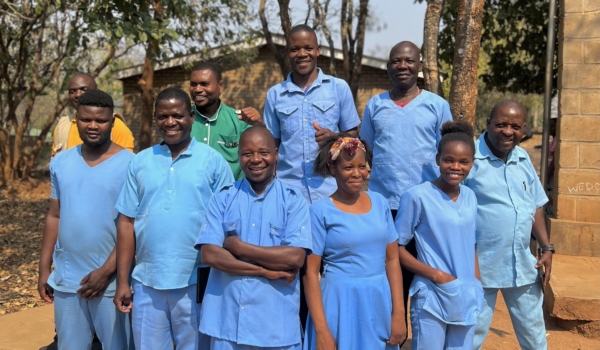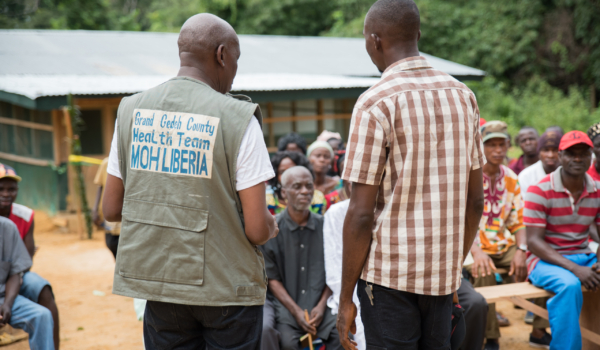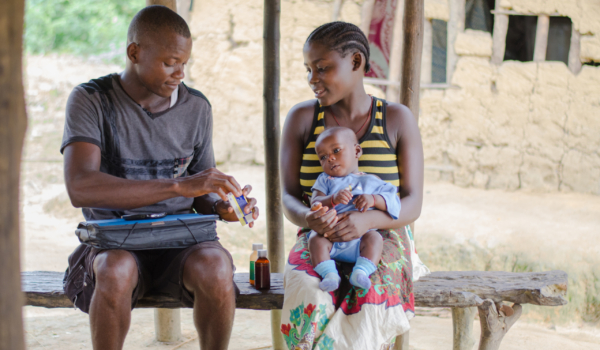The COVID-19 pandemic has highlighted the critical importance of health and care workers, the majority of whom are women worldwide. We are joining Women in Global Health, the Government of France, and the World Health Organization in the Gender Equal Healthcare Workforce Initiative to address gender inequities in the health and care workforce. During the International Year of Health and Care Workers in 2021, this initiative aims to increase visibility, dialogue, technical outputs and commitment to action on improving gender equity in the health and care workforce.
The Liberia Ministry of Health and Last Mile Health have committed to increasing the number of female community health workers employed in the National Community Health Assistant Program to increase gender parity and the availability of high-quality health services for women.
Current Status
Despite women accounting for 70% of the health and social care workforce globally, they comprise just 18% of the community health workers employed by the Government of Liberia’s National Community Health Assistant Program. The program, launched after the Ebola epidemic, aims to make primary healthcare universal for people living in rural and remote communities.
The program aims to give preference to women to become community health workers, both to provide high quality health services to all Liberians and to harness gender-focused benefits such as improving female literacy and the social status of women, and supporting female economic empowerment. Despite these aspirations, recruitment guidelines in place that are designed to encourage the recruitment of women as community health workers do not meet these goals.
Inadequate female representation in the community health workforce is a key obstacle to maximizing the impact and sustainability of the National Community Health Assistant Program. Liberia’s disease burden at the national level continues to disproportionately affect women, as maternal mortality is a leading cause of death, and there is low coverage of modern family planning methods. In addition, evidence from the Liberia Ministry of Health and partners demonstrates that the low percentage of female community health workers has contributed to gaps in quality of care.
The Government of Liberia, in partnership with Last Mile Health and other partners, is now revising the policy that guides that National Community Health Assistant Program after the first five years of implementation. Now, the Government and partners have a timely opportunity to enable greater recruitment and retention of female community health workers.
Action
The Government of Liberia aims to first conduct a gender assessment of Liberia’s National Community Health Assistant Program, to examine the gender responsiveness of the policy, identify and document gender inequities that exist within the program and their root causes, and assess how the program has impacted men and women differently.
The outcomes of this assessment will include recommendations to: address key gender challenges in the national policy and program, set realistic gender objectives, and propose concrete actions, especially policy changes to advocate for in the upcoming National Community Health policy revision. The goal is to utilize the window of opportunity for change within the current policy revision process and to build a long-term roadmap for a more equitable National Community Health Assistant Program.
Increasing the number of women who serve as paid community health workers will not only expand access to high-quality primary care for women and families, it will also elevate women as trusted leaders in their communities – setting a powerful example for the generations to come that women are leaders at every level of the health system.




